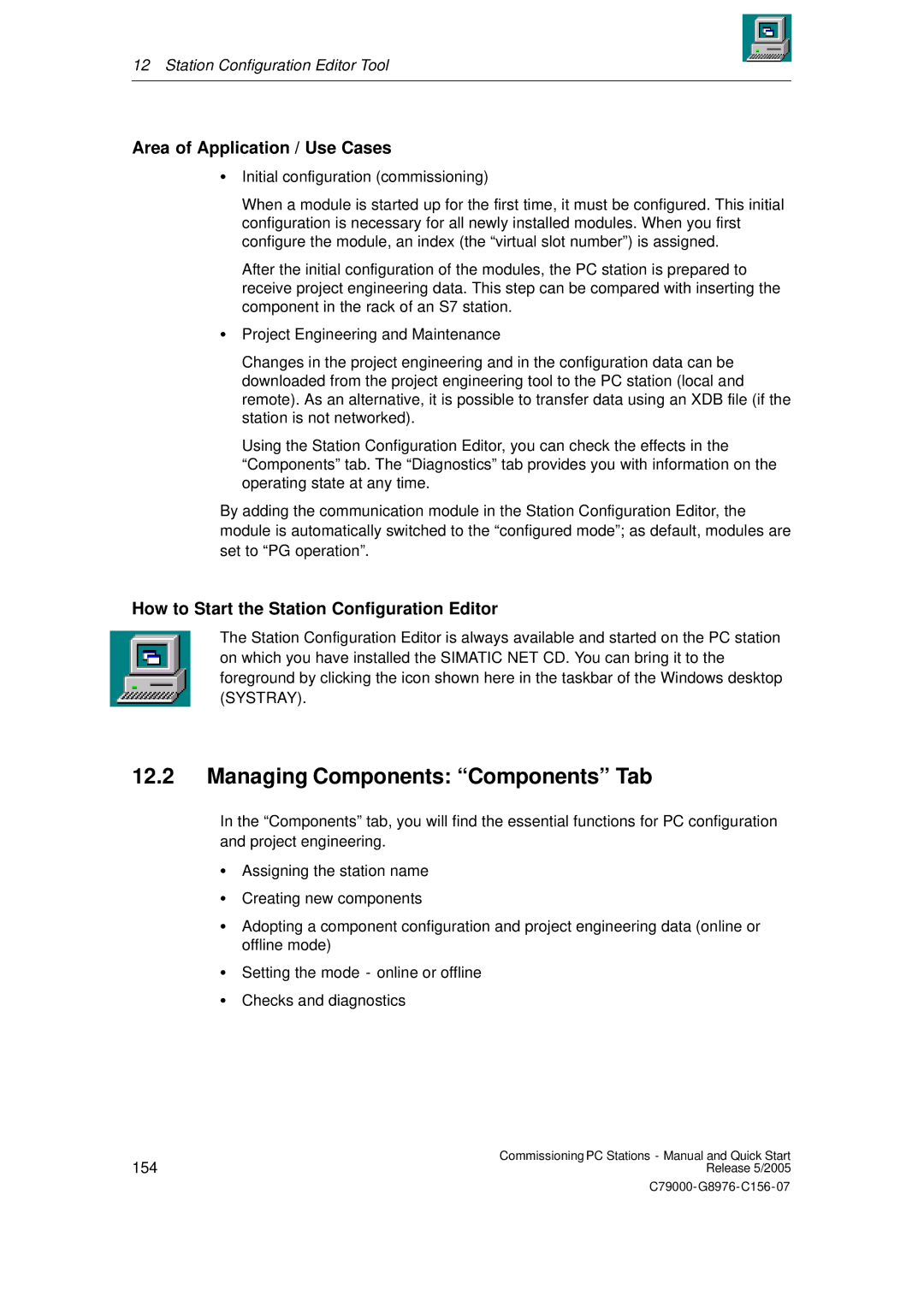
12 Station Configuration Editor Tool
Area of Application / Use Cases
SInitial configuration (commissioning)
When a module is started up for the first time, it must be configured. This initial configuration is necessary for all newly installed modules. When you first configure the module, an index (the “virtual slot number”) is assigned.
After the initial configuration of the modules, the PC station is prepared to receive project engineering data. This step can be compared with inserting the component in the rack of an S7 station.
SProject Engineering and Maintenance
Changes in the project engineering and in the configuration data can be downloaded from the project engineering tool to the PC station (local and remote). As an alternative, it is possible to transfer data using an XDB file (if the station is not networked).
Using the Station Configuration Editor, you can check the effects in the “Components” tab. The “Diagnostics” tab provides you with information on the operating state at any time.
By adding the communication module in the Station Configuration Editor, the module is automatically switched to the “configured mode”; as default, modules are set to “PG operation”.
How to Start the Station Configuration Editor
The Station Configuration Editor is always available and started on the PC station on which you have installed the SIMATIC NET CD. You can bring it to the foreground by clicking the icon shown here in the taskbar of the Windows desktop (SYSTRAY).
12.2Managing Components: “Components” Tab
In the “Components” tab, you will find the essential functions for PC configuration and project engineering.
SAssigning the station name
SCreating new components
SAdopting a component configuration and project engineering data (online or offline mode)
SSetting the mode - online or offline
SChecks and diagnostics
154 | Commissioning PC Stations - Manual and Quick Start |
Release 5/2005 |
